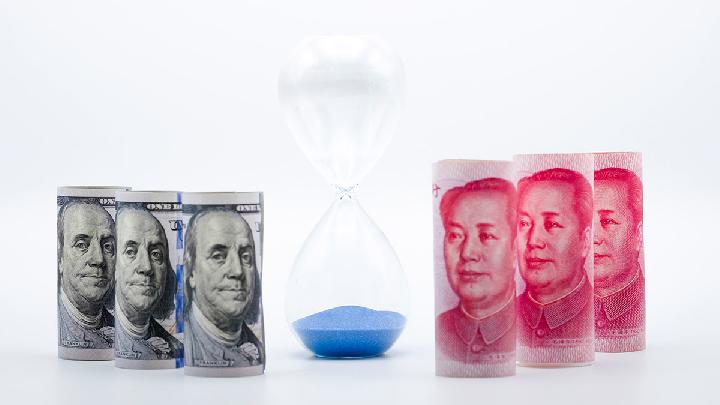TEMPO.CO, Jakarta - As other countries scramble to renegotiate new tariffs with Washington, China seems unwilling to back down. China has stated that Donald Trump's trade war with Beijing will fail for Washington, just hours after the U.S. President announced that he would increase import tariffs on the country to 125 percent.
U.S. President Donald Trump has long accused other countries, especially China, of exploiting the U.S. in trade, stating that his protectionist agenda is necessary to revive domestic manufacturing and reopen jobs in America.
The Scale of the US-China Trade War This Time
The U.S.-China trade war has reached an unprecedented level of escalation this week. However, as reported by DW, it has been effectively ongoing since Trump's first term in office.
In January 2018, the Trump administration imposed import tariffs on China, which Beijing promptly retaliated against. Although agreements were reached between the two countries in 2020, most tariffs remained in place until the recent escalation.
In 2024, the U.S. imported goods and services worth around $440 billion from China, compared to $145 billion in the other direction. This means that China has a significant trade surplus with the U.S., exporting much more than it imports from the U.S.
On February 3, 2025, just two weeks after taking office, President Trump announced an additional 10 percent tariff on all goods from China. This is on top of various tariffs imposed during Trump's first term from 2017-2021 and the administration of former U.S. President Joe Biden from 2021-2025.
Not stopping there, on March 5, Trump doubled import tariffs on China to 20 percent. A month later, on April 2, 2025, he further raised tariffs for China by 34 percent, bringing the total to 54 percent. China, of course, did not sit idly by. On April 4, China announced retaliatory tariffs of 34 percent on U.S. imports.
In response, Trump was furious. He threatened to impose even higher tariffs unless Beijing withdrew its 34 percent increase on long-term trade violations by tomorrow at the latest, April 8, 2025. "The United States will impose ADDITIONAL Tariffs on China of 50%, effective April 9th,” Trump said on the Truth Social platform on Monday, as quoted by Al Jazeera.
With these additional tariffs, the import duty on Chinese products soared to 104 percent. Trump was confident that China would capitulate and come to an agreement. “China also wants to make a deal, badly, but they don’t know how to get it started,” the U.S. president wrote in a social media post. “We are waiting for their call. It will happen!”
Unfortunately, China's next move did not align with Trump's wishes. On Wednesday, Beijing raised import tariffs on U.S. goods to 84 percent. Hours later, Trump retaliated again, raising tariffs on China even further, now up to 125 percent.
Impact of the Tariff War on China
Despite the escalating tensions between the U.S. and China, Washington and Beijing remain major trading partners. According to the U.S. Trade Representative's Office, America imported $438.9 billion of goods from China last year. This amount is equivalent to approximately 3 percent of China's gross domestic product (GDP), which heavily relies on exports.
This amount is equivalent to approximately 3 percent of China's gross domestic product (GDP), which heavily relies on exports. In a report shared with clients on Tuesday, Goldman Sachs estimates that Trump's latest tariffs will reduce China's GDP by 2.4 percent.
The investment bank predicted 4.5 percent growth this year, citing concerns that China's proven tactics of redirecting exports through countries like Vietnam and Thailand, to avoid U.S. tariffs, would be less effective after Trump set up global trade barriers.
However, for Jayati Ghosh, an economics professor at the University of Massachusetts Amherst, China is the most prepared country to handle the impact of Trump's trade war salvos.
To mitigate tariff impacts, Beijing might focus on domestic stimulus and enhancing relations with its trading partners to achieve a target growth of 'around 5 percent,' said Ghosh, an economics professor, to Al Jazeera.
Ghosh stated that China would ''quietly'' increase exports to trading partners, especially in Southern countries, through measures such as ''loans and debt relief.''
On April 3, credit rating agency Fitch downgraded China's government rating, citing rapidly increasing government debt and risks to public finances, as policymakers prepare to shield the economy from tariff increases.
However, for Ghosh, “there is a Western tendency to see the imminent collapse of the Chinese economy." “I’m far more concerned about the US economy,” she said.
How Does the Tariff War Affect the US?
On Wednesday, JP Morgan Chase CEO Jamie Dimon expects a recession due to President Trump's tariffs rattling global financial markets. Dimon's comments come amid a historical downturn in the bond market, part of what some strategists call the ''sell America'' trade.
Trump fulfilled his promise to reciprocate tariffs on around 60 countries on Wednesday, topping the basic 10 percent tariff that the U.S. began imposing last Saturday. So far, according to Axios, there is no evidence that the United States is currently experiencing a recession.
In an interview with Maria Bartiromo of Fox Business, Dimon thinks a recession is a possibility. BlackRock CEO Larry Fink supports Dimon's statement. He said that most CEOs would agree that a recession has occurred.
Goldman Sachs predicts that the U.S. will avoid a recession, but it will be very close. According to Axios, the Goldman Sachs economic team has been more accurate than most other economic teams in recent years, they are now forecasting a GDP growth of 0.5 percent this year.
The forecast assumes a 15 percent tariff increase, a large number, but still less than the 20 percent increase implemented on Wednesday. If all of that remains in place, Goldman says a recession will occur, although a fairly mild one.
How Do Other Countries Respond?
One determining factor that remains uncertain in this trade war is the response from other countries. If the U.S. successfully coerces other countries to end their tariffs and if they choose to stand behind the U.S. against China, then, according to Xin Sun, a Chinese economist at King's College London, "that would be a worst-case scenario for Beijing."
Xin stated that this is one of the reasons why China decided to react quickly and decisively to Trump's tariffs. This move sends a strong signal to everyone that China will not tolerate such trade barriers and tariffs. “If anybody else would like to raise tariffs against China in a similar way [as] the United States, then they should be ready to face the consequences,” said Xin as quoted by France24.
Editor's Choice: US-China Tariff War Escalates: Global Economic Fallout Looms
Click here to get the latest news updates from Tempo on Google News














































